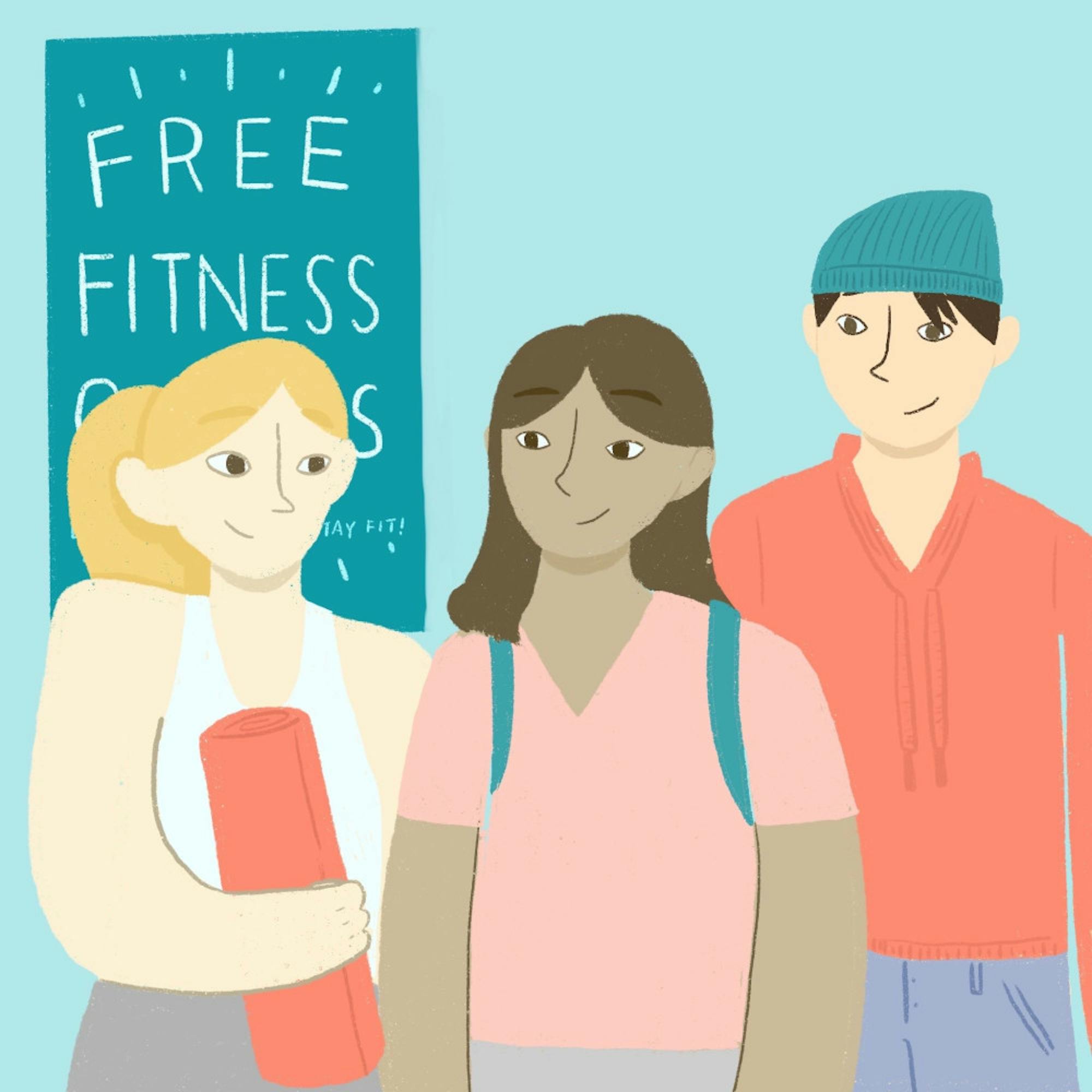For many students, college inspires new starts, new academic investigations and new personal growth. During this time of change, many students begin to focus on personal health, often starting to incorporate fitness into their lifestyles. While the Steve Tisch Sports and Fitness Center ideally provides new opportunities to students who previously might not have had access to a gym or been able to afford a membership, this positive intention is overshadowed by clear barriers to making such positive lifestyle shifts: due to the intense overcrowding and a lack of community in the student gym, students often feel uninvited and uncomfortable working out on campus.
Free high-quality fitness classes would instantly address these issues; however, while Tufts offers some classes free of cost, they are in high demand and fill up quickly, thus inhibiting interested students from participating. In order to address the athletic facilities’ lack of communal inclusivity and allow all interested students to enroll in fitness classes, Tufts should offer all classes free of cost and add physical education course options. These classes would not only help students maintain their physical and mental health, but they would also increase accessibility and build stronger relationships between peers.
Exercise for college students is essential to effectively manage stress as well as build a foundation for a healthy adulthood. From preventing disease to promoting better sleep to improving mental health, consistent exercise betters countless facets of one’s life, especially for college students. Active lifestyles prove especially important when one considers a decline in student mental health and depression, self injury and suicidal thoughts in American college students has more than doubled in the last decade. As shown by various research studies, fitness promotes improved mental health through increasing cognitive function and reducing stress, anxiety and depressive symptoms.
However, due to inclusivity issues and the at-times intimidating nature of the gym, some students do not feel comfortable freely attending the gym without a formal class. Notably, some female-identifying students feel that the gym has a domineering nature, failing to properly invite women to use its equipment. Men largely monopolize the weight section, causing women to feel unwelcome and uncomfortable experimenting with machines, especially if they are new to the process of working out. Overcrowding in the gym, in part due to a lack of on-campus fitness options and broken machines, leads to waiting lines and minimal space to comfortably work out.
Senior Rachel Yao told the Daily that she had this experience first-hand, as she does not utilize the Tufts fitness center due to its negative atmosphere. She remarked that “it is always crowded, and I feel like everyone is always watching each other.”
Implementing more free fitness classes at the Tisch Fitness Center would address these issues of accessibility and inclusivity by giving gym-goers a variety of fitness options. In these classes, those typically uncomfortable working out in male-dominated, overcrowded spaces would have more financially-accessible and convenient spaces to improve their physical health and thus their overall lifestyles.
Additionally, free fitness classes would inspire students to exercise and reap the mental and physical benefits of a healthy lifestyle. People, especially engaged students, often struggle to begin working out, as physical exercise requires commitment, motivation and free time. Fitness classes catalyze this process, creating a judgment-free space rich in social opportunities and accountability.
First-year Christine Char shares this sentiment, describing her experience attending a kickboxing class earlier this year.
“I liked that it was an excuse to be with friends while staying active and healthy,” Char said. Had the classes been free, she added, she likely would have attended future classes.
By increasing the amount of free fitness classes, Tufts would signal to its students that it believes in the prioritization of wellness, even in the midst of hectic schedules. While this is a matter of inclusivity and accessibility, basic health lies at the heart of this issue. Tufts must allow students the opportunity to live a healthy lifestyle, for health is a human right and should never be sacrificed.
Editorial: Tufts must prioritize student wellness by increasing free fitness class offerings






